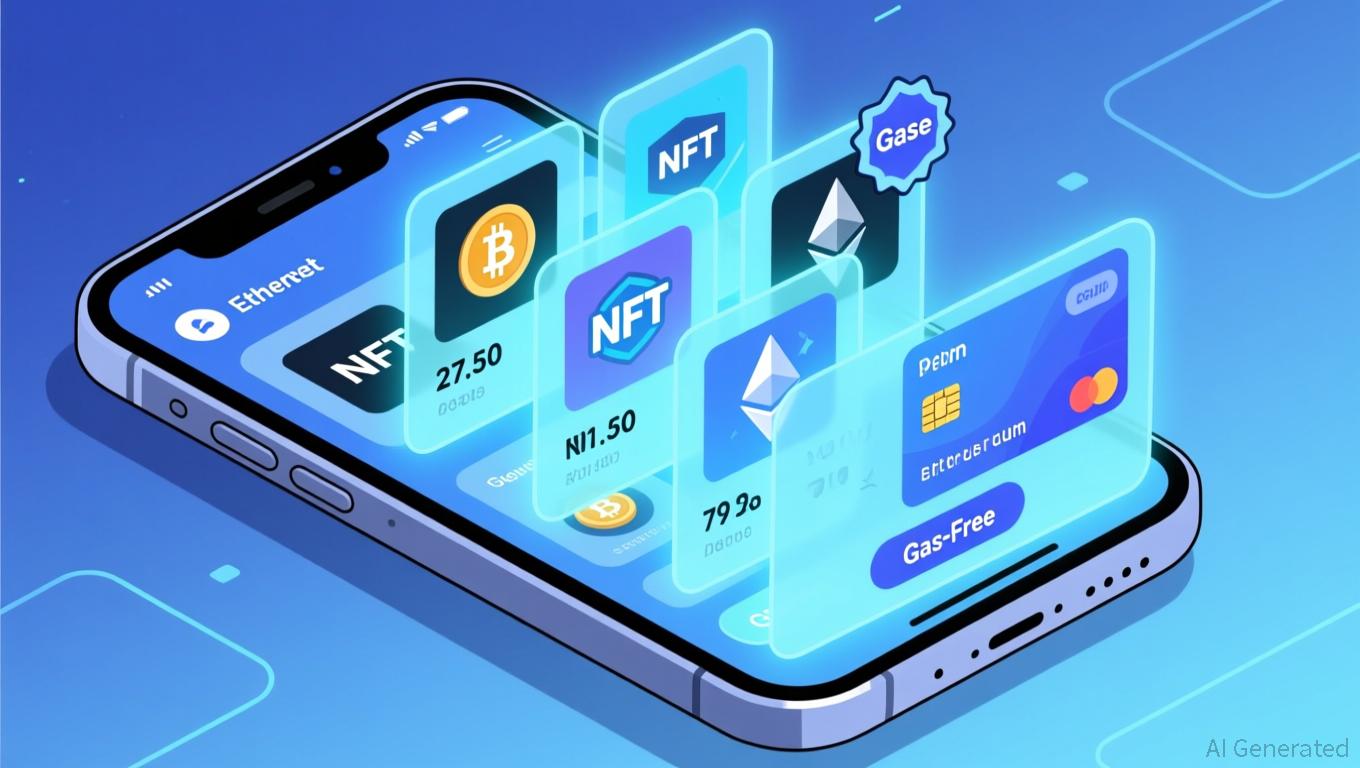SEC's Token Classification Ignites Regulatory Dispute With CFTC Over Cryptocurrency Oversight
- SEC proposes token taxonomy framework to classify crypto assets, excluding decentralized tokens and utilities from securities under the 1946 Howey Test. - Bipartisan bills aim to shift crypto commodity oversight to CFTC, raising concerns over agency capacity amid staffing shortages and pending leadership confirmations. - Regulatory overlap between SEC and CFTC intensifies as Congress seeks cohesive frameworks, balancing innovation incentives with investor protections in evolving crypto markets.
The U.S. Securities and Exchange Commission (SEC) is moving forward with a "token taxonomy" framework designed to clarify which digital assets are considered securities. Chairman Paul Atkins highlighted the importance of striking a balance between fostering innovation and enforcing strict measures against fraudulent activities. Drawing from the 1946 Howey Test, this initiative aims to sort digital tokens into four categories based on their characteristics and uses, which would exclude many tokens from being labeled as securities, according to a
Atkins shared details of the proposal at the Federal Reserve Bank of Philadelphia's Fintech Conference, explaining that tokens linked to decentralized networks, digital collectibles,

This taxonomy is intended to simplify compliance for both developers and investors, while aligning with ongoing legislative efforts in Congress. Several bills addressing market structure are advancing in both chambers, with bipartisan proposals suggesting that oversight of digital commodities should shift primarily to the Commodity Futures Trading Commission (CFTC), as noted by
The regulatory environment is further complicated by political factors. A bipartisan Senate bill, introduced by Senators John Boozman (R-AR) and Cory Booker (D-NJ), seeks to give the CFTC authority over spot cryptocurrency trading and includes measures to boost the agency’s workforce and funding, according to
Meanwhile, Mike Selig, nominated by the Trump administration to chair the CFTC, is awaiting Senate confirmation amid slow legislative progress, as mentioned by
As regulatory frameworks continue to develop, industry stakeholders are watching for guidance on how these new rules will interact with existing laws. With the SEC and CFTC navigating overlapping responsibilities and Congress working toward comprehensive legislation, the final shape of crypto regulation is still uncertain, aiming to balance support for innovation with robust investor protections, as reported by
Disclaimer: The content of this article solely reflects the author's opinion and does not represent the platform in any capacity. This article is not intended to serve as a reference for making investment decisions.
You may also like
Zero-Knowledge Startup Secures $9M Funding, Introduces Gamified Verification to Bridge Privacy and Compliance
- Zero-knowledge identity protocol Self raised $9M in seed funding led by Greenfield Capital and SoftBank's fund, alongside angel investors like Casey Neistat and Polygon's Sandeep Nailwal. - The startup launched a points program incentivizing on-chain identity verification using ZKPs and verifiable credentials, partnering with Google , Aave , and Velodrome to bridge privacy-compliance gaps. - By enabling biometric passport verification and Aadhaar integration without exposing sensitive data, Self aims to
Gavin Wood Supports Acurast’s Decentralized Computing Revolution Driven by Smartphones
- Acurast, a smartphone-based decentralized computing project, secured $11M in funding led by Ethereum co-founder Gavin Wood and others. - The platform launched its mainnet on November 17, aiming to transform 150,000 smartphones into secure compute nodes for confidential tasks. - By leveraging hardware-backed security and eliminating intermediaries, Acurast challenges traditional data centers while addressing privacy and environmental concerns. - Despite scalability challenges, the project's 494 million pr

Crypto wallets are transforming into comprehensive platforms, connecting Web3 with traditional financial services
- D'CENT Wallet's v8.1.0 update enables multi-wallet management for up to 100 accounts, streamlining digital asset handling across investment, NFTs, and events. - Competitors like Exodus and Blaqclouds advance crypto adoption through features like Mastercard-linked debit cards and decentralized identity systems with biometric security. - Innovations such as fee-free transactions (D'CENT GasPass) and on-chain identity management (.zeus domains) highlight industry focus on accessibility and security for main

Grayscale's Public Listing: Advancing Crypto Adoption as Regulations Vary Worldwide
- Grayscale files U.S. IPO via S-1, joining crypto firms like Circle and Bullish in public markets. - IPO details remain undetermined, contingent on SEC review and market conditions. - Japan's TSE tightens crypto listing rules amid volatile "crypto hoarding" stock collapses. - U.S. regulators advance crypto rulemaking post-shutdown, potentially accelerating Grayscale's approval. - Grayscale's IPO highlights crypto's institutional push amid global regulatory divergence.
